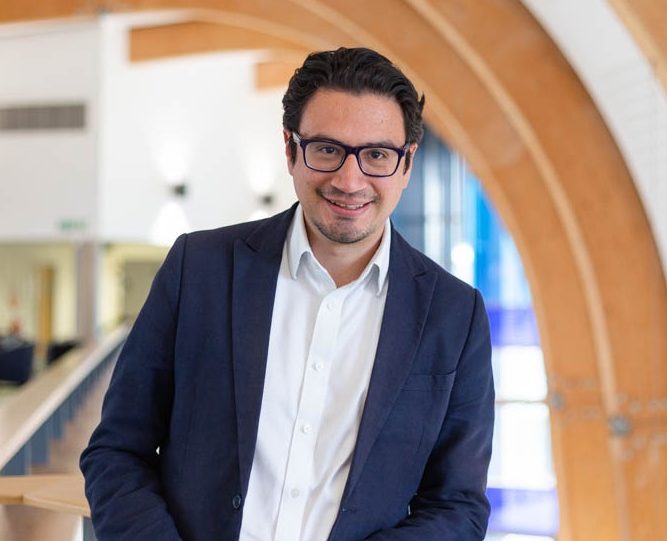
Dr Rodrigo Perez Vega is an Associate Professor in Digital Marketing at Henley Business School. Prior to this he was a Senior Lecturer at the University of Kent. He is a dedicated marketing professional with a fervour for digital marketing, entrepreneurship, and emerging technology. Rodrigo is a co-author of the book “Essentials of Digital Marketing,” a user-friendly textbook that offers an engaging introduction to digital marketing, helping readers grasp the impact of digital channels on marketing operations.
Rodrigo’s expertise in digital marketing extends beyond the classroom. He has provided consultation and training to business owners and marketing professionals on effectively utilising digital marketing tools to achieve their business objectives. Some of his recent collaborations include training the marketing and sales teams at Samsung Baltics in advanced paid search campaigns and working closely with SMEs as part of the Go Digital program organized by Norfolk County Council. Rodrigo has also lent his expertise to non-profit organisations such as World Vision and TREE AID.
As a frequent speaker at global conferences focused on digital marketing and social media, Rodrigo has participated in events like the SME World Summit and the Social Media Summit. He has engaged with various industry clients, providing training on digital marketing tools for business purposes. Rodrigo has also been involved in online projects, including “Instant Counselling,” an online platform offering 24/7 therapy services, and “Pro-Counselling,” a B2B mental health and wellbeing platform that serves both private and public organisations. Notable clients of the latter include Health Education England, King’s College London, and EDHEC Business School, among others.
In his leisure time, Rodrigo contributes to business magazines like The Intelligent SME and has been interviewed on topics related to digital marketing by TRT World and France 24. Rodrigo divides his time between the UK and France, enjoying family moments, dining out, socialising, and indulging in game nights. For more information, visit Dr Rodrigo Perez Vega’s website: Home – Dr Rodrigo Perez Vega – Digital Marketing, Technology & Entrepreneurship.
UKHEI Experience | Years |
|---|---|
University of Reading, Henley Business Scool: Associate Professor in Marketing University of Kent: Senior Lecturer Digital Marketing & Analytics Henley Business School: Lecturer in Digital Marketing Heriot-Watt University: Program Director in Marketing | 2022 – 2020-2022 2016-2020 2015-2016 |
Industry Experience | Years |
|---|---|
Reading Borough Council – Independent living project NHS – Royal Berkshire Hospital – Social robots in dementia wards Agriculture and Horticulture Development Board – Social Media Marketing UK Government – Help to grow program – Developing a marketing strategy Nokia Baltics – Advanced Digital Marketing Norfolk County Council – Go Digital Program Launch of Instant Counselling Social Media Summit World Vision Launch of fashion brand MICROSMOS TREE AID – Social Media Consulting Kellogg Company | 2023-2025 2023 2023 2022 2021 2021 2017 2016 2015 2014 2014 2006-2008 |
Education | Years |
|---|---|
Heriot-Watt University: Marketing Heriot-Watt University: Strategy MIP Politecnico di Milano: Strategic Project Management Umeå University: MSc Management Tecnológico de Monterrey: BA (w Hons) Marketing | 2011 – 2016 2008 – 2010 2008 – 2010 2008 – 2010 2002 – 2006 |

